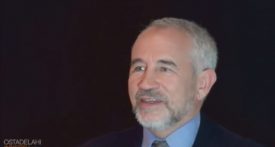Search results for tag "Philosophy" - 10 answer(s)
250
Vote
I noticed recently, as I was listening to one of these debates we all too often get to see on TV or hear on the radio, how little Truth is expressed in these exchanges. Perfectly malleable minds, weaving through this verbal universe; ideas and concepts going back and forth, one after the other, but carrying no weight, relieved of all reality, emptied of all knowledge.
Why is that? Because knowing, truly understanding, involves more than this mere game of ideas and theoretical scaffolding, no matter how ingenious and brilliant. Knowing involves a personal experience of reality, it involves the challenge of confronting our convictions and beliefs to reality.
Read more
757
Vote
It is not enough to learn to speak well. If we want to benefit from the words of those who intend to convey knowledge to us, we also need to learn to listen well. This, briefly, is Plutarch’s main thesis in “On Listening to Lectures”. It is quite remote from the current discourse on listening, which defines it almost exclusively as the condition of an authentic relationship to others, as this quiet action that could open us up to the subjectivity of others so that we may grasp their needs, desires and frustrations. This short essay examines listening as a “necessary condition to learning”. In other words, how shall we listen to those who know (or pretend to know) in a way that will allow us to take in what we need and thus progress in the knowledge—so dear to Plato’s followers—of truth and good?
Read more
Judging lectures by how beneficial they are One ought therefore to strip off the superfluity and inanity from the style, and to seek after the fruit itself, imitating not women that make garlands, but the bees. For those women, culling flower-clusters and sweet-scented leaves, intertwine and plait them, and produce something that is pleasant enough, […]
Read more
610
Vote
James Morris, Ph. D., is professor of Theology at Boston College. A specialist of islamic philosophy, he has written authoritative studies on Ibn ’Arabi and Mulla Sadra’s metaphysics. His most recent publications include a translation of Ostad Elahi’s Knowing the Spirit (SUNY, 2006), a book which he also prefaced and annotated.
In first part of this video interview published by ostadelahi-indepth.com, Prof. Morris discusses the reasons that led him to study this particular work. He emphasises its relevance and place in today’s modern world by explaining how Ostad Elahi invites his readers to relate the arguments developed in his study to their own personal spiritual experience.
Read more
863
Vote
Pascal was right: proofs of the existence of God are of no avail when it comes to giving faith to the faithless. To realize that a divine scheme is at work in the universe requires more than rational arguments. What, then, is needed? In Knowing the Spirit (p. 45), Ostad Elahi provides the reader with a clue. He speaks of the voice of conscience as an inner device capable of attesting to the existence of God. Now, what does voice of conscience mean? Where does it come from and how exactly can it lead us to acknowledge the existence of God?
Read more
476
Vote
In elaborating proofs for God’s existence, oriental and occidental philosophers alike did not necessarily intend to instil faith in those who were lacking it. When he wrote chapter 1 of Knowing the Spirit, which deals exclusively with this very question, Ostad Elahi was well aware that none of the arguments he presented could actually prove […]
Read more
662
Vote
How come we feel so upset when our beliefs are not shared by others? Why should disagreement over our convictions get us so often into trouble with one another? How do we come to despise or detest someone only because they disagree with what we say? When our freedom of thought is not at stake, […]
Read more
371
Vote
In attempting to reconcile faith and reason, philosophers have produced what is traditionally called “proofs of the existence of God”. These proofs usually present themselves as sophisticated arguments. As such, they are open to disputation and, one must admit, hardly convincing. It is by reference to them that Pascal wrote: “The metaphysical proofs of God are so remote from the reasoning of men, and so complicated, that they make little impression; and if they should be of service to some, it would be only during the moment that they see such demonstration; but an hour afterwards they fear they have been mistaken.” (Pensées, 543)
Read more
348
Vote
Virtue ethics can be defined as an ethical approach that emphasises the character of the agent. Whereas consequentialism emphasises the consequences of the action, and deontological ethics the rules that one may follow, virtue ethics define a virtuous act by a certain virtue in the agent, for example benevolence or generosity. Virtue ethics is not in conflict with deontological or consequentialist approaches, and can even be reconciled with them. The action driven by virtue ethics actually precedes the other two approaches: while deontological ethics or consequentialism addresses what is to be done in any given situation, virtue ethics focuses on the ways to develop certain virtues, or character patterns, in order to act well when needed. The main problem for virtue ethics, then, is 1) to define which virtues are desirable, and 2) how to develop them.
Read more
238
Vote
If, as normal individuals without extraordinary faculties, we are to carry through to the end the task of self perfection, we should bear in mind that we would not be able to achieve this without drawing sustenance from a transcendent source of energy. By cultivating within oneself a feeling of an omniscient, omnipotent and infinitely […]
Read more
Next »
|

 News
News Podcast
Podcast










Recent Comments